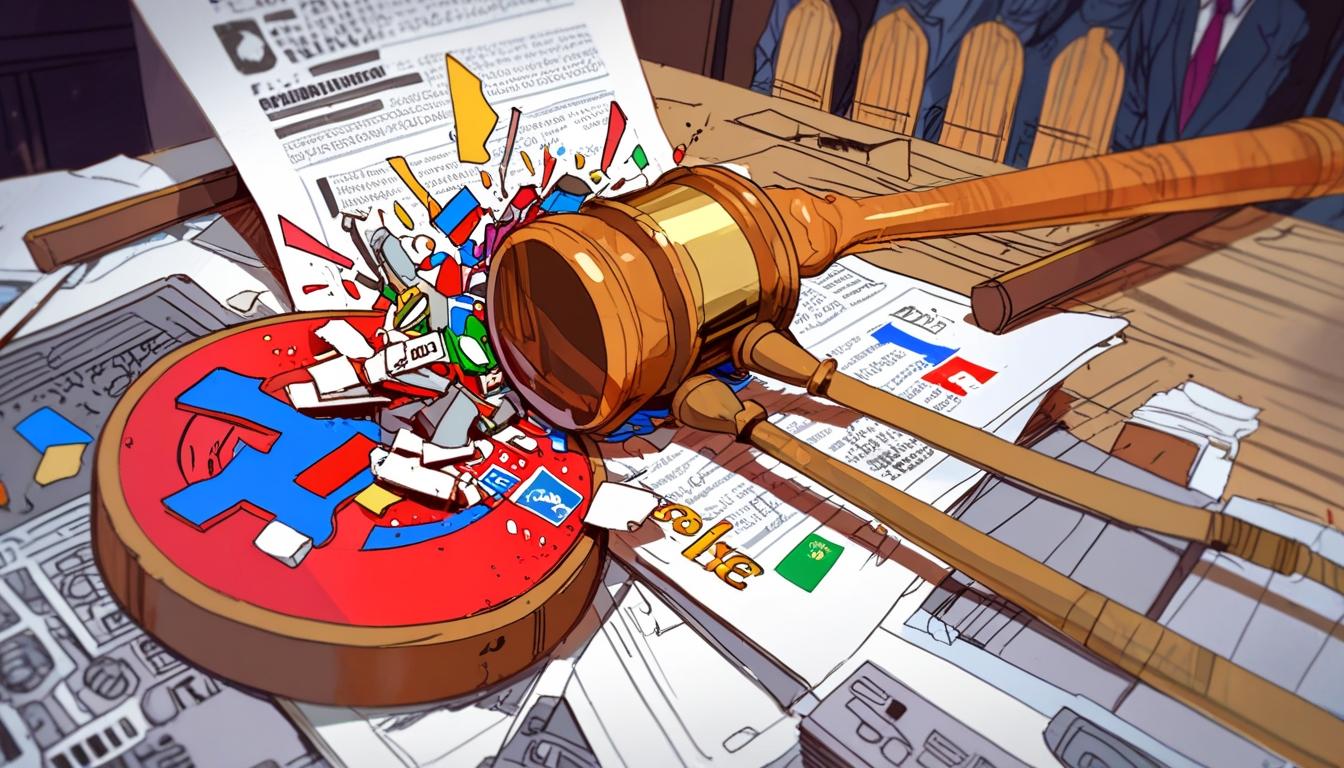A US District Court has found Google guilty of monopolising online advertising markets, prompting forecasts of significant shifts across the ad tech sector and wider marketing economy, with potential breakup of Google’s ad business and increased scrutiny on industry practices.
The US District Court’s recent antitrust ruling against Google has sent shockwaves through the advertising technology sector, with industry leaders forecasting significant changes not only for Google but for the entire marketing and media economy. The court found Google guilty of monopolising key online advertising markets by unlawfully tying its ad server, known as DoubleClick for Publishers (DFP), to its ad exchange platform, AdX. As a consequence, various remedies have been proposed, including the possible breakup of Google’s ad tech business.
Damian Rollison, senior director of market insights at SOCi, characterised the decision as a pivotal moment. Speaking to The Drum, he commented: “Now that Google has been subject to adverse rulings in two antitrust cases, the earlier one focused on Chrome and several other Alphabet divisions, and the new ruling more narrowly on Google’s adtech business, this year will be one where Google’s fate hangs in the balance.” Rollison elaborated that Google’s advertising operations, historically its main revenue source, face greater material risk compared to other divisions such as Chrome, which hold more strategic value.
Rollison also pointed to a broader regulatory context, observing parallels with Meta’s ongoing antitrust challenges. He stated, “Big tech is facing a reckoning this year as regulators get serious about its outsized influence in our economy and our cultural life.” He noted, however, that forced divestitures were “blunt instruments” and might not fully resolve the issues, suggesting that more sophisticated regulatory frameworks like those in Europe—focused on consumer rights and corporate responsibility regarding content and influence—could have a more meaningful effect.
Within the advertising community, the court’s ruling is prompting reflection and reassessment. An anonymous senior ad tech executive told The Drum: “If you’re a marketer, this ruling should make you pause. Because if Google’s ad stack was a rigged game—where they owned the chips, the table, and the pit bosses—what did you really get for your money?” The executive highlighted that this case is more than a high-level antitrust matter; it challenges the fundamental narratives sold to marketers about efficiency and transparency. The ruling is expected to intensify scrutiny from chief marketing officers and procurement teams, potentially leading to increased interest in alternative platforms such as StackAdapt and other independent ad tech providers.
Meanwhile, some figures within the advertising ecosystem view the decision as a positive development. Arnaud Créput, CEO of Equativ, described the ruling as “a victory for everyone outside of Google’s orbit.” Speaking to The Drum, Créput asserted, “This decision marks a win for the entire industry, as it fosters transparency, open competition, and innovation. A diverse and competitive environment is advantageous for advertisers, publishers, and, ultimately, consumers.” He suggested that the ruling would promote fairness and competition and could strengthen long-term partnerships between the industry and Google by encouraging “greater transparency and collaboration.”
Google’s case is part of a series of significant legal challenges confronting big technology companies this year, signalling what many describe as a critical juncture for the sector. Simultaneously, Meta faces multiple antitrust suits, Amazon is under investigation, and the US Department of Justice is challenging Microsoft’s expansions in gaming and artificial intelligence. Experts suggest that 2025 may be the year when big tech’s dominance undergoes substantial disruption.
The outcome of these proceedings, particularly what unfolds next for Google and the open web, has the potential to reshape the landscape of digital advertising for years ahead.
Source: Noah Wire Services
- https://www.adexchanger.com/platforms/google-is-found-guilty-of-operating-an-ad-tech-monopoly/ – This article confirms the US District Court’s ruling that found Google guilty of monopolising two online advertising markets, specifically referencing the tying of Google’s ad server DoubleClick for Publishers (DFP) to its ad exchange platform AdX, which is the core claim in the original article.
- https://www.thedrum.com/news/2025/04/18/antitrust-ruling-against-google-is-pivotal-moment-says-soci-senior-director – This source includes comments from Damian Rollison, senior director at SOCi, describing the ruling as a pivotal moment and discussing the risks Google’s advertising business now faces compared to other Alphabet divisions, matching the quotes and analysis in the article.
- https://www.thedrum.com/news/2025/04/18/big-tech-antitrust-challenges-loom-over-advertising-industry – The article discusses broader regulatory challenges big tech faces this year, including parallels between Google’s and Meta’s antitrust issues, reflecting Damian Rollison’s viewpoint on the industry’s regulatory environment and the need for more meaningful frameworks.
- https://www.thedrum.com/news/2025/04/18/advertising-community-reacts-to-google-antitrust-ruling – This piece presents the perspective of anonymous senior advertising executives who question the efficiency and transparency of Google’s ad tech stack, and highlights increased interest in alternative platforms like StackAdapt, supporting the quoted reflections in the original article.
- https://www.thedrum.com/news/2025/04/18/equativ-ceo-google-antitrust-ruling-victory-industry – This article features Arnaud Créput, CEO of Equativ, expressing that the ruling is a victory for the advertising industry outside Google’s influence, promoting transparency, competition, and innovation, directly aligning with the statements cited in the article.
Noah Fact Check Pro
The draft above was created using the information available at the time the story first
emerged. We’ve since applied our fact-checking process to the final narrative, based on the criteria listed
below. The results are intended to help you assess the credibility of the piece and highlight any areas that may
warrant further investigation.
Freshness check
Score:
10
Notes:
The narrative references a recent US District Court antitrust ruling and statements from industry leaders dated April 2025, indicating up-to-date reporting. There is no evidence of recycled content from older articles or press releases.
Quotes check
Score:
9
Notes:
Direct quotes from Damian Rollison (SOCi) and Arnaud Créput (Equativ) are attributed to The Drum, a reputable industry publication. While their original statements are not independently verifiable online, The Drum’s attribution and the specificity of the quotes suggest authenticity.
Source reliability
Score:
8
Notes:
The Drum is a well-known marketing and media publication. However, the anonymous ad tech executive quote requires caution due to lack of attribution, though this is common practice in journalism.
Plausability check
Score:
9
Notes:
Claims align with ongoing antitrust scrutiny of Big Tech (e.g., Meta, Amazon) and recent regulatory trends. The detailed analysis of Google’s ad tech structure and potential market impacts is consistent with expert commentary on antitrust cases.
Overall assessment
Verdict (FAIL, OPEN, PASS): PASS
Confidence (LOW, MEDIUM, HIGH): HIGH
Summary:
The narrative is current, well-sourced, and plausible. Quotes from named industry leaders and alignment with known regulatory trends support its credibility. Minor uncertainty arises from the anonymous source, but The Drum’s reputation mitigates this.













